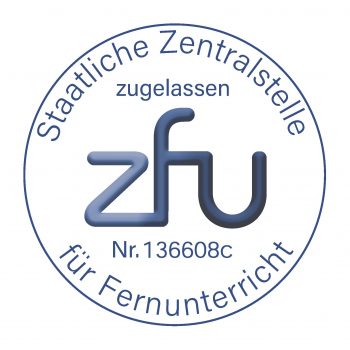Portfolio management
Who is the university certificate suitable for?
With the "Portfolio Management" university certificate, you will specifically expand your expertise in the field of professional asset management. If you want to make sound investment decisions, implement modern portfolio strategies and take your knowledge of risk-return correlations and market mechanisms to the next level, this certificate is the perfect step for your professional development. Whether you are already working in the financial sector or are a career changer with a background in economics, you will gain valuable know-how that will advance your career or help you manage your own assets.
The most important things at a glance:
- Duration of study: 6 months + 6 months free extension
- ECTS credit points: 10 ECTS credit points
- Exam form: Online exam
- Start of studies: at any time
- Credit transferability: M.Sc. Finance (if you have completed a first degree in economics).
- Tuition fees: EUR 165 per month, EUR 990 in total
University certificate in portfolio management - your path to professional asset management
At a time when financial markets are becoming increasingly global, complex and volatile, sound knowledge in the field of portfolio management is crucial for sustainable success. The "Portfolio Management" university certificate provides you with practice-oriented and scientifically sound skills that will enable you to make well-founded investment decisions, analyze risks and make targeted use of opportunities for returns.
Mastering return, risk and security - Success with portfolio theory and efficient strategies
A central element of the certificate is the in-depth examination of the basic concepts of capital investment. You will learn how to correctly calculate return types such as arithmetic and geometric returns as well as real and reinvestment returns and how to classify them in the context of risk assessments. You will also deal with the interplay between risk and security and gain an in-depth understanding of systematic and unsystematic risks, risk classes and the beta factor as a measure of market risk.
In the area of modern portfolio theory, you will deal intensively with the concept of diversification and the importance of correlation between asset classes. You will learn how to determine portfolio ratios and design efficient portfolios - both with and without risk-free investment alternatives. This will equip you with the tools to structure investment portfolios in a targeted manner and to achieve the optimum balance between risk and return.
Understanding the market and mastering portfolio management in the current context
Another focus is on capital market history and forecasting. They analyze historical returns, identify possible distortions in the data and develop an understanding of long-term risk premiums. This knowledge is supplemented by insights into how capital markets work: How are prices formed? What role does efficiency play in price formation? What do market liquidity, price bubbles and market structures mean for your investment strategy?
Current challenges such as inflation and leverage are also dealt with in a practical way. You will learn how fixed-interest strategies work in an inflationary environment and what impact leverage has on portfolio performance. The module also examines transaction cost management, information asymmetries, decision-making processes when buying and selling securities and their significance for long-term portfolio success.

